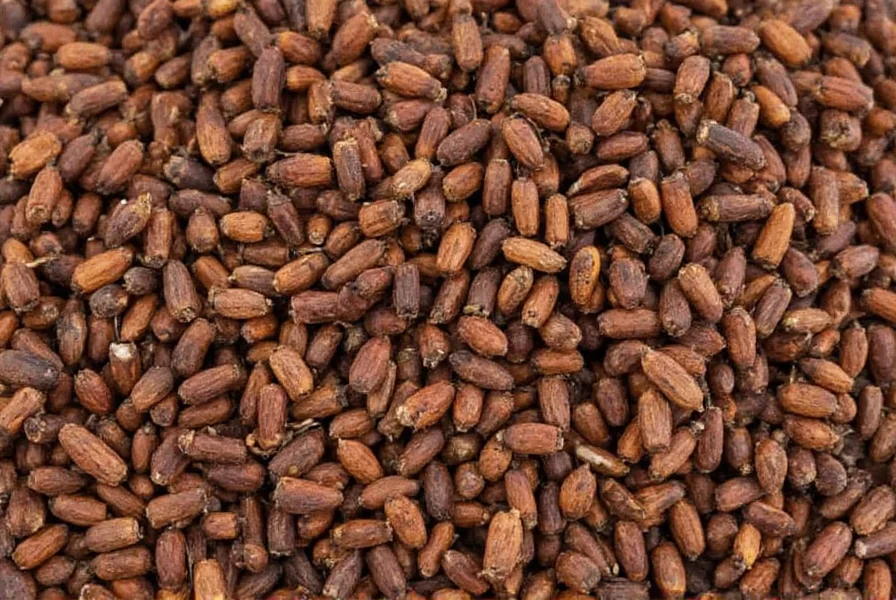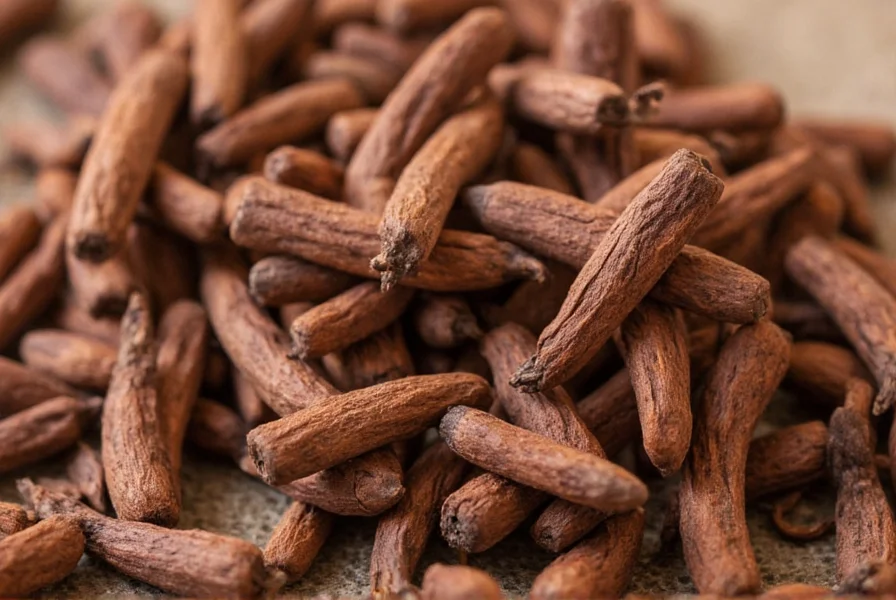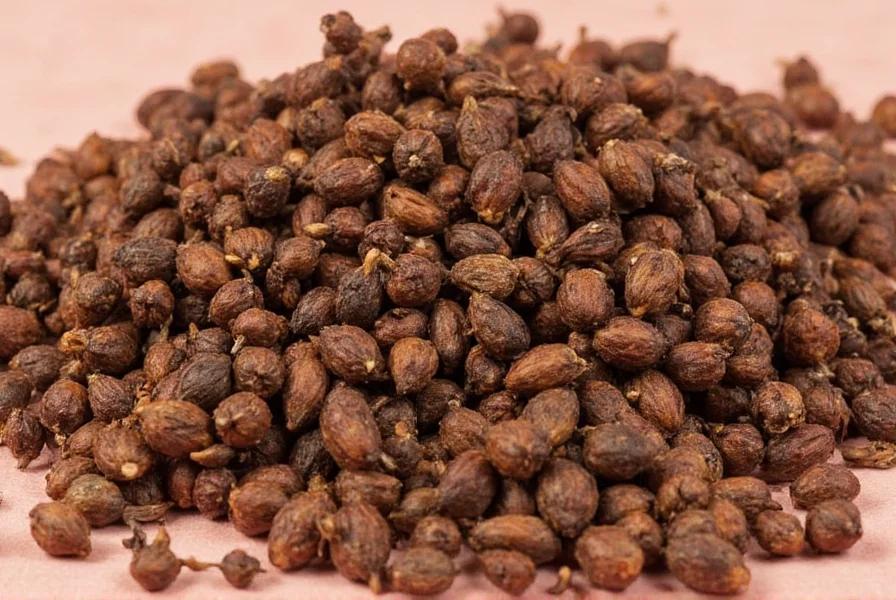Cloves, those small but potent spice buds, have carried profound significance far beyond their role in modern kitchens. These dried flower buds from the evergreen Syzygium aromaticum tree contain eugenol, giving them their distinctive warm, pungent flavor and remarkable medicinal properties. Understanding the meaning of cloves requires exploring their journey from ancient Indonesian forests to global prominence.
Botanical Origins and Historical Significance
Native to the Maluku Islands in Indonesia, cloves have been traded for over 2,000 years. Ancient Chinese records from the Han Dynasty (206 BC–220 AD) mention cloves as early as 400 BC, where courtiers would hold cloves in their mouths to freshen their breath before addressing the emperor—a practice revealing the historical meaning of cloves in traditional etiquette.
During the Middle Ages, cloves became so valuable in Europe that they were worth more than their weight in gold. The Dutch monopoly on clove production in the 17th century led to violent conflicts, demonstrating how the cultural significance of cloves extended into economic and political realms. This historical context helps explain why cloves carried such weight in ancient trade routes and colonial ambitions.
Cultural Symbolism Across Civilizations
Cloves have accumulated diverse symbolic meanings across different cultures. In traditional Chinese medicine, cloves symbolize warmth and vitality, used to treat digestive issues and respiratory conditions. The meaning of cloves in Ayurvedic practices centers on their ability to balance bodily energies and enhance oral health.
| Culture | Symbolic Meaning | Traditional Use |
|---|---|---|
| Chinese | Purification and respect | Mouth freshener for courtiers |
| Indian | Healing and protection | Dental care and digestive aid |
| Middle Eastern | Prosperity and blessing | Added to rice dishes for special occasions |
| European | Wealth and status | Preserving food and masking odors |
Spiritual and Ritualistic Applications
The spiritual meaning of cloves in various religious practices reveals their enduring symbolic power. In Hindu traditions, cloves are often included in puja offerings for their purifying properties. Some African spiritual practices incorporate cloves into protective amulets, believing they ward off negative energy.
In Caribbean and Latin American folk traditions, cloves feature prominently in love spells and prosperity rituals. The practice of studding oranges with cloves as decorative pomanders during holidays connects to medieval European customs where these fragrant orbs protected against disease—a testament to the historical meaning of cloves in traditional medicine and public health.

Modern Interpretations and Uses
Today, the meaning of cloves continues to evolve while maintaining historical connections. Scientific research validates many traditional uses, confirming cloves' antimicrobial, anti-inflammatory, and analgesic properties. The cultural significance of cloves in contemporary natural medicine remains strong, particularly in dental care products and holistic remedies.
In culinary contexts, cloves symbolize warmth and celebration, especially during holiday seasons. Their distinctive flavor profile makes them essential in spice blends like garam masala, pumpkin spice, and Chinese five-spice powder. Understanding the symbolic meaning of cloves in wedding ceremonies across various cultures reveals their association with fertility, protection, and sweetening life's journey.

Preserving Cloves' Legacy
As we explore the multifaceted meaning of cloves, we recognize their journey from rare luxury to accessible spice while maintaining symbolic importance. Sustainable farming practices in modern clove-producing regions like Indonesia, Madagascar, and Tanzania help preserve both the tree species and traditional knowledge surrounding cloves.
The enduring relevance of cloves demonstrates how a simple botanical specimen can carry profound cultural, medicinal, and symbolic weight across centuries and continents. Whether used in a holiday ham, a traditional remedy, or a spiritual practice, cloves continue to connect us to ancient wisdom and global traditions.
Frequently Asked Questions
What is the spiritual meaning of cloves in different cultures?
Cloves carry diverse spiritual meanings across cultures. In Hindu traditions, they represent purification and are used in religious offerings. African spiritual practices often incorporate cloves into protective amulets believed to ward off negative energy. In Caribbean folk traditions, cloves feature in love spells and prosperity rituals. Historically, medieval Europeans used clove-studded pomanders for protection against disease, connecting cloves to health and purification in spiritual contexts.
How were cloves used historically for medicinal purposes?
Historically, cloves served as a versatile medicinal remedy across many civilizations. Ancient Chinese physicians used cloves to treat digestive issues and respiratory conditions. In Ayurvedic medicine, cloves addressed dental pain, bad breath, and digestive disorders. Medieval European practitioners applied clove oil for toothaches and as an antiseptic. The antimicrobial properties of eugenol, cloves' primary compound, validated many traditional uses, making them valuable in pre-modern medicine for pain relief and infection prevention.
What does the word 'clove' mean etymologically?
The word 'clove' derives from the Latin 'clavus,' meaning 'nail,' which refers to the spice's nail-like shape. This etymology connects to the Old French 'clou' and Middle English 'clowe.' The botanical name Syzygium aromaticum reflects its aromatic properties. The historical trade name 'caryophyllus' comes from Greek words 'karyon' (nut) and 'phyllon' (leaf), describing how the clove bud resembles a nut encased in leaves. This linguistic history reveals how the spice's physical characteristics influenced its naming across languages.
Why were cloves so valuable during the spice trade era?
Cloves commanded extraordinary value during the spice trade era due to their limited natural habitat (originally only the Maluku Islands in Indonesia), exceptional preservative qualities, medicinal applications, and status as luxury items. Their scarcity, combined with high European demand for preserving food and masking odors, made them worth more than their weight in gold. The Dutch monopoly in the 17th century further inflated their value, leading to violent conflicts over control of clove-producing territories, demonstrating how economic, political, and cultural factors converged to elevate cloves' historical significance.
What is the meaning of cloves in wedding traditions?
In various wedding traditions worldwide, cloves symbolize protection, fertility, and the sweetening of life's journey. In some Middle Eastern cultures, cloves are incorporated into bridal henna mixtures for their protective qualities. Certain African traditions include cloves in wedding rituals to ensure prosperity. In European folk customs, cloves studded into oranges or apples featured in wedding decorations, representing the couple's hope for a life filled with warmth and spice. The enduring presence of cloves in matrimonial ceremonies reflects their symbolic association with enduring love and protection against misfortune.











 浙公网安备
33010002000092号
浙公网安备
33010002000092号 浙B2-20120091-4
浙B2-20120091-4